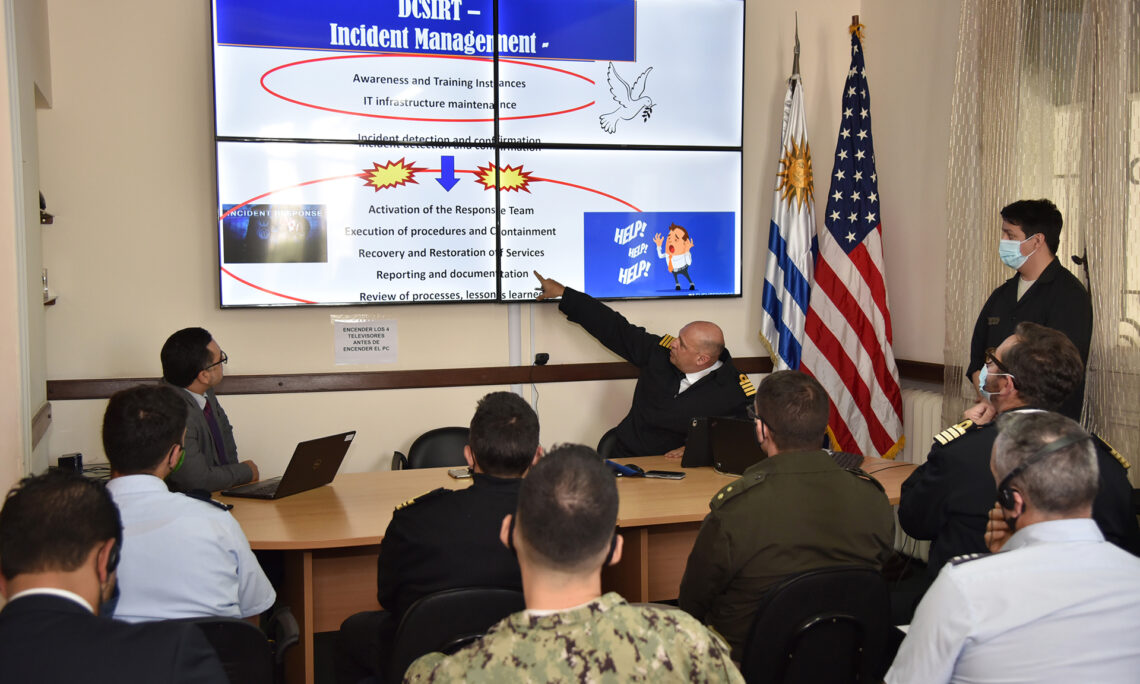Among the top threats for 2022 are cyberterrorism, cyber blackmail, cyber kidnapping, data breaches, and theft of electronic wallets and cryptocurrencies, according to the report 2022 Security Predictions, published by the cybersecurity firm DigiCert.
“Cyberattacks not only affect critical health, transportation, or water infrastructure, they can also affect the supply chain of common products. They all have a common denominator: Anyone can be a victim. The key is to improve our cybersecurity every day,” the Organization of American States said on Twitter.
On December 1-2, 2021, experts from the Uruguayan Chambers of Information Technology and Digital Economy and the embassies of the United States, Canada, the United Kingdom, and the European Union in Uruguay shared intelligence and experiences in cybersecurity with Uruguayan government and private entities, through the digital seminar The Future is Here: Sharing Perspectives on Cybersecurity Opportunities and Challenges, the U.S. Embassy said in a statement.

Participants reviewed cyber systems for implementing security in cities, critical infrastructure, public surveillance while preserving privacy and civil liberties, and methods for detecting and reacting to threats and attacks.
In addition, participants implemented international cooperation mechanisms, such as the 24/7 Cybercrime Network, to ensure rapid international cooperation to prosecute these crimes, the U.S. Embassy said. More than 60 countries take part in the international network, Montevideo-based newspaper El País reported on its website.
“The United States can help best by assisting Latin American and Caribbean allies and partners in building their cyber capacity,” Alex Crowther, a professor at Florida International University, told the American nongovernmental organization Atlantic Council, after Microsoft reported on December 6 that a Chinese hacking group called NICKEL had attacked large parts of the public and private sector in Latin America.
Before the seminar, on October 25, a team of military experts from U.S. Southern Command (SOUTHCOM) and Uruguay’s Ministry of Defense and Ministry of the Interior worked to coordinate efforts against cyberspace threats, the U.S. Embassy in Uruguay said in a press release.
“Global economic losses due to cybercrime exceeded $1 trillion in 2020 and continue to rise. It is estimated that they will cost nations more than $5 trillion in 2021,” the U.S. Embassy said.








